Workplace Health and Safety
Health and Safety is a rapidly changing area, and one which businesses and individuals need to be fully aware of their responsibilities. I would firstly like to preface this discussion paper by saying that the below discussion points are not intended to provide guidelines but rather promote awareness around hazards which impact the pipeline installation industry. Waterworks fully endorses seeking professional advice when reviewing H&S policies.
- Storage of dangerous goods, e.g. solvent cements and primers
- Hazards of welding
- Working in a confined space
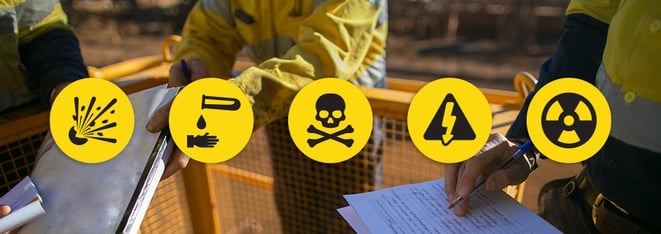
Storage of Dangerous Goods
Storage of PVC solvent cements and primers is one hazard which could be easily overlooked by pipeline installers. Not only does this pose a risk to personnel but it poses a risk to your business. In the event of a fire or other emergency’s, incorrectly stored cements and primers could void your insurance policy.
Where you store your solvent cements and primers is important and will depend on the hazard class level as well as the amount being stored. Small amounts may be able to be kept in metal cabinets while large amounts may need to be kept in a separate building. A helpful tool for determining how to store your PVC solvent cements and primers is the hazardous substances calculator on the WorkSafe website.
Some additional tips are:
- Ensure containers of hazardous substances are clearly and correctly labelled. Signage is also required when you have hazardous substances exceeding specific quantities. This can also be determined using the above calculator.
- Keep the hazardous substances you store to a minimum to help reduce compliance needs and costs.
- Request and store material safety data sheets from your supplier. These need to be easily accessible in the event of an emergency.
- If you purchase PVC cements and primers in large volume containers and decant, ensure the containers you decant into are in good condition and are clearly labelled.
- Create, maintain, and have easily available a list of the hazardous substances you have onsite.
- Inform and train your team of hazardous substances in their area of work and the relevant risks.
Hazards of Welding & Confined Space Work
The welding of pipes and fittings is a proven and frequently used method of joining pipes. However, there are a number of hazards which can be seen immediately as well as those which are more subtle and be detrimental to health over a period of time. Some examples of these hazards are:
- Fires and explosions
- Burns
- Toxic fumes and gases
- Electric shock
- Radiation
Similarly, working in a confined space carries with it a number of risks. Oxygen-deficient, toxic, flammable and explosive atmospheres are some hazards.
How can you mitigate or eliminate these hazards and risks?
There are certain applications, such as high-pressure pipelines, highly hazardous substance pipelines, and food-grade pipelines, which require welding and there are times when this work is in a confined space. Welding technology and protective equipment has come a long way in recent times and certainly helps to mitigate these hazards.
However, the ultimate is to eliminate the hazard and risk, and this is where Europress offers installers huge benefits for a majority of general services such as water reticulation, compressed air, gas, glycol, selected chemicals, and oils. Using battery powered tooling for tube sizes 15mm to 168.3mm, there is no hot works, eliminating fire, burn, and radiation risks. No toxic fumes and gases are required, and likewise electrical leads are eliminated meaning no electrical shocks or trip hazards. Furthermore, Europress tooling is lightweight and eliminates the risk of injury through heavy lifting of gas bottles and welding equipment.
Although there are many hazards we could identify, workplace health and safety does not need to be the daunting task it may seem. By breaking it down into small chunks and implementing new strategies regularly, progress overtime can be significant. Regular engagement with health and safety can have the added benefit of creating a culture of keeping our teammates safe. What is one improvement you could make today?
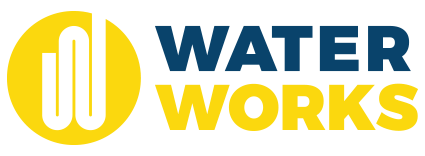
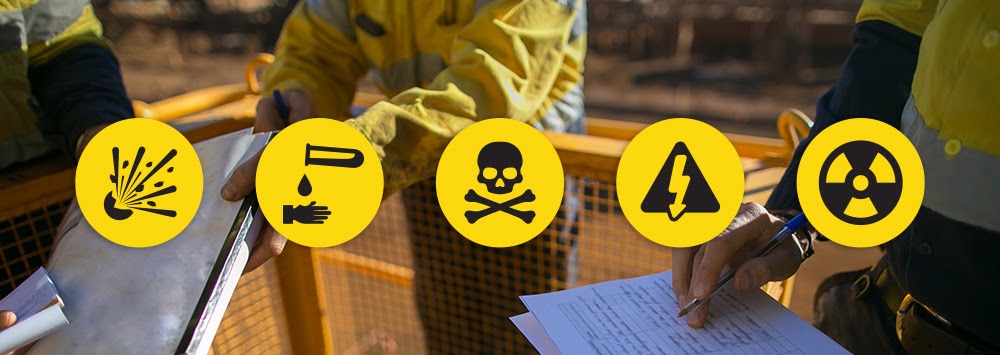
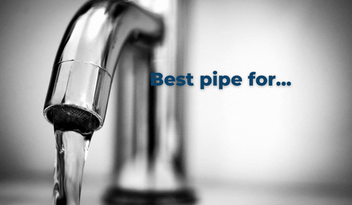
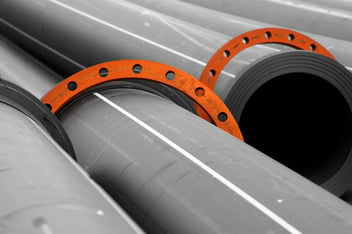
-1.png?width=352&name=Copy%20of%20WW%20%20Blog%20headers%202023%20(19)-1.png)